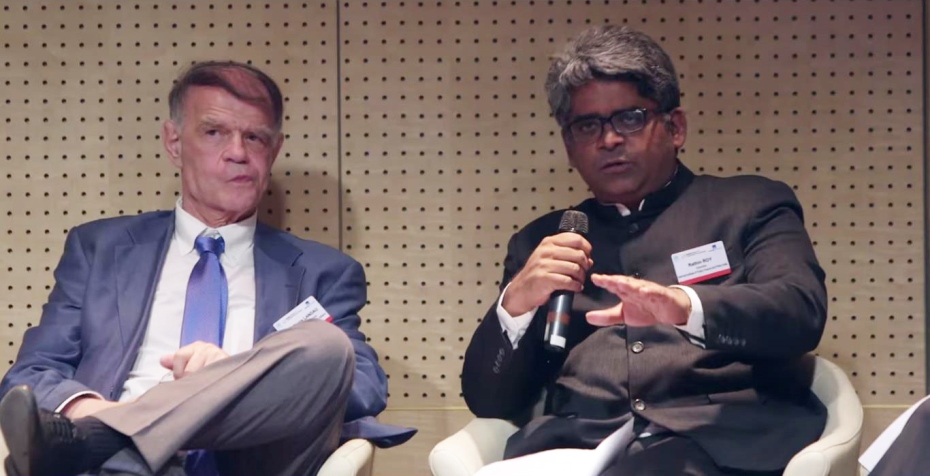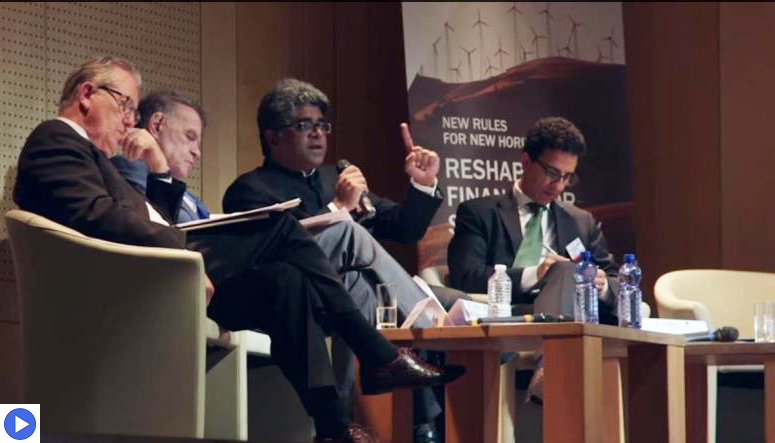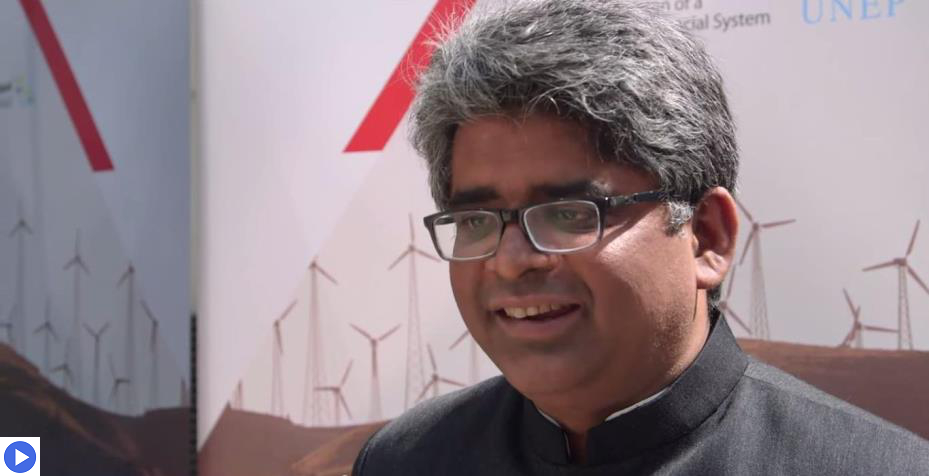Activities
- 5th Biennial High-level Meeting of the Development Cooperation Forum (DCF), July 21, 2016
- Conference on Economics and Politics of Local Governments: The Indian Experience
- 11th Annual Conference on Economic Growth and Development
- NCAER Seminar: The World Bank’s India Development Update 2015: Fiscal Policy for Equitable Growth, November 2015
- IGEG Conference, October 2015
- Present State of Goods and Services Tax (GST) Reform in India, Canberra, August 2015
- New Rules for New Horizons: Reshaping Finance for Stability, Paris, July 2015
- The New Development Bank: Identifying Strategic and Operational Priorities, New Delhi, June 2015
New Rules for New Horizons: Reshaping Finance for Stability, Paris, July 2015
Inquiry Retreat and the AXA-Inquiry Symposium New Rules for New Horizons: Reshaping Finance for Stability in Paris, France from 1-3 July 2015
In the session on Aligning the Financial system with sustainable development, Dr. Roy made an insightful observation on the use of fossil fuels and its effect on financial market -
“China was the last country to industrialise through fossil fuels. From India onwards all developing countries will have to do this without recourse to growing fossil fuel consumption. No western country has done this. It is a first. Innovations are needed in every kind of financial market.”
In the session on ‘The Great Compression: thinking about sustainability in a world of low interest rates’, Dr. Roy commented on the feasibility of real-time investment and assessed the barriers it faces in emerging economies –
“Emerging economies are working – We need savings that yield low returns in Europe and the US to move to economies that give high returns. But global financial markets view investment outside the West as ‘an adventure’; short-term financial flows come in and go out. Institutional barriers are impacting long-term real investment.”

Dr. Rathin Roy observed while making comments to the address by Jean-Pierre Landau, Professor of Economics, Dean of the School of Public Affairs, Sciences Po in the session on ‘The Great Compression: thinking about sustainability in a world of low interest rates’ that the financial market of emerging economies work but the problem lies in institutional failure. He said that we need to make public policy fixes in economies like India where the government has first claim on public savings. For full video excerpt download pdf.
“The financial markets are terrified because they think they will be penalised because the central bank is scared. Europe has lost its appetite for looking at climate change as an opportunity to green the world and we have to convert the climate finance challenge into a climate finance opportunity.”
“You can’t rely on the textbooks to fix European and US markets anymore, so I look forward to different forms of creative and innovative intervention. “
‘Two further drivers of major change to the financial system were also discussed: the innovative disruption being unleashed by new technologies and business models, and the growing importance of major developing countries in the shaping of the international financial system. Over two hundred participants, including officials from international institutions, central banks and financial regulators, and private sector representatives and academics, debated the current state of the financial system, its purpose for society and the potential and challenges for reshaping it towards sustainability.’ (Source: AXA)
The Inquiry into the design of a sustainable financial system has been initiated by the United Nations Environment Programme to advance policy options to improve the financial system’s effectiveness in mobilizing sustainable development.
AXA is one of the world leading insurance and asset management groups, serving 103 million clients, individuals and business, in 59 countries. It is focused on property-casualty, life & savings, and asset management.


